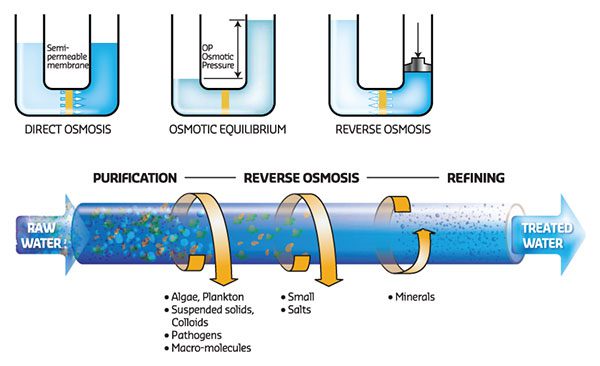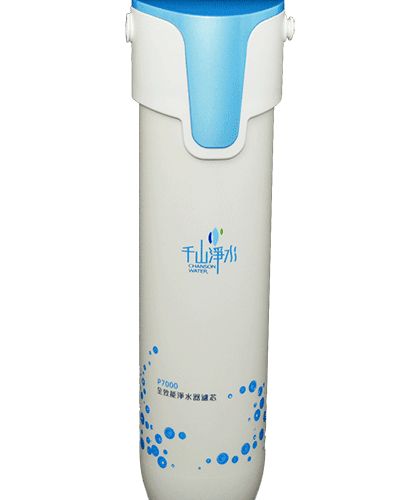Reverse Osmosis Studies, How Drinking RO Water Negatively Impacts Health
Is Reverse Osmosis A Good Choice For Your Daily Table Water?
Most people erroneously assume that reverse osmosis (RO) water is the perfect drinking water because it is pure and without any contaminants. However, you could also state that RO water throws your baby out with the bathwater in the sense that it also removes the naturally occurring healthy, alkaline minerals. RO water isn’t found in nature, so when offered the choice between RO water and mineral water, animals will invariably choose mineral water.
Distilled water is always devoid of having minerals, soft water has a low mineral content, and most bottled waters contain RO water.
Research has revealed there are several detrimental health effects that could be caused by long-term reverse osmosis/distilled/soft water consumption. A World Health Organization (WHO) report by Frantisek Koziek states:
During the late 1970’s, the WHO commissioned a report conducted by using a group of researchers with the A.N. Sysin Institute of General and Public Hygiene and USSR Academy of Medical Sciences with the direction of Professor Sidorenko and Dr. Rakhmanin. The completed report determined that “not only does completely demineralised water (distillate) have unsatisfactory organoleptic properties, but it additionally carries a definite adverse impact on the animal and human organism”.
What The Reverse Osmosis Studies Found?
Reverse Osmosis Studies In Animals
Experiments on animals, primarily rats, for roughly one-year periods have repeatedly demonstrated how the consumption of distilled water or water with TDS = 75 mg/L results in:
- Increased intake of water, diuresis, extracellular fluid volume, and serum concentrations of sodium (Na) and chloride (Cl) ions and their increased elimination from the body, leading to an over-all negative balance.
- Lower volumes of red cells and a few other haematocrit changes.
Reverse Osmosis Studies In Humans
Outcomes of research in human volunteers evaluated by researchers for the WHO report agree with those who work in animal experiments and propose the same basic mechanism in the results of water lower in TDS (e.g. < 100 mg/L) on water and mineral homeostasis.
Other more current studies report that the consumption of soft water (water low in minerals), might be linked to greater risk of fracture in children (Verd Vallespir et al. 1992), certain neurodegenerative diseases (Jacqmin et al. 1994), pre-term birth and low weight at birth (Yang et al. 2002), some types of cancer (Yang et al. 1997; Yang et al. 1998, Yang et al. 1999a; Yang et al. 1999b; Yang et al. 1999c; Yang et al. 2000), an increased risk of sudden death (Eisenberg 1992; Bernardi et al. 1995; Garzon and Eisenberg 1998), a higher risk of motor neuronal disease (Iwami et al. 1994), and preeclampsia (Melles & Kiss 1992).
- Certain neurodegenerative diseases (Jacqmin et al. 1994)
- Pre-term birth and low weight at birth (Yang et al. 2002)
- Some types of cancer (Yang et al. 1997; Yang et al. 1998, Yang et al. 1999a; Yang et al. 1999b; Yang et al. 1999c; Yang et al. 2000),
- An increased risk of sudden death (Eisenberg 1992; Bernardi et al. 1995; Garzon and Eisenberg 1998),
- A higher risk of motor neuronal disease (Iwami et al. 1994),
- Preeclampsia (Melles & Kiss 1992).
Other Things To Consider When Drinking Reverse Osmosis
When utilized for cooking, soft water is discovered to result in substantial losses of all the essential elements from food (vegetables, meat, cereals). Such losses may reach up to 60 % for magnesium and calcium or maybe more for some other microelements (e.g., copper 66 %, manganese 70 %, cobalt 86 %). On the other hand, when hard water is used to cook, the loss of these elements is significantly lower, and in many cases, a much higher calcium content was reported in food because of cooking.
So, just how are you able to have more minerals within your water? Stop drinking bottled waters which don’t contain minerals. For those who have a RO system or reside in a soft water area, you could add a Remineralizer with your filtering system which can add magnesium and calcium to your water. If you live in a hard water area, get yourself a good quality water purification system which will decrease the contaminants but leave the healthy alkaline minerals. Incorporating an electrical water ionizer will then make those minerals more bio-available.


